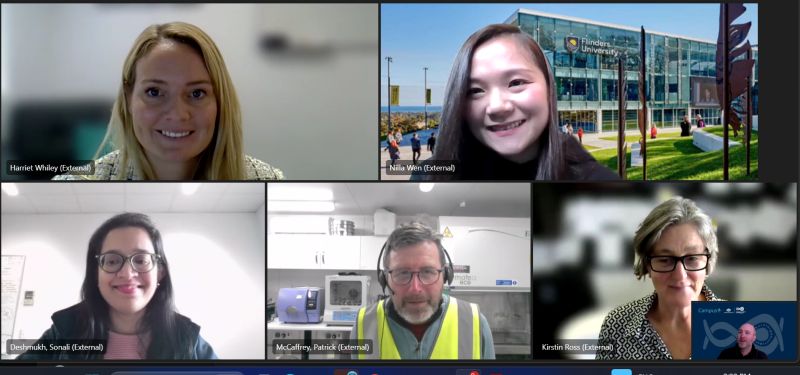
Evaluating the use of evaporative cooling systems to improve indoor air quality (IAQ) and reduce the transmission of infectious diseases
Flinders University and Seeley International Pty. Ltd. commence an industry-focused PhD project to examine the microbial aspects of evaporative cooling systems and their potential to mitigate airborne disease transmission.
Project Overview:
Leveraging Flinders University’s air quality research expertise, the ARC Training Centre For Biofilm Research and Innovation, and Seeley International’s leadership in evaporative manufacturing, this project bridges the gap between academia and industry to drive innovation and deliver real-world impact.

Industry Insights:
Seeley International highlights the strategic importance of this project: “We are transitioning to healthier market alternatives. This research will help translate these products, enhancing infection control and indoor air quality for the community. Our evaporative systems dilute, diffuse, and disperse indoor air, creating a fresher, healthier environment while being more energy-efficient than reverse cycle cooling systems.”
University Contribution:
Professor Timothy Cavagnaro, Flinders Pro Vice-Chancellor (Research Training and Capabilities) and Dean of Graduate Research at Flinders University, comments: “The project showcases Flinders University’s strengths in environmental health education and research. Our engagement with industry programs like the National Industry PhD Program is vital for our postgraduates’ career development and research in product commercialisation and innovative practices.”
Student Perspective:
Industry Researcher PhD Candidate Sonali Deshmukh shares her enthusiasm: “Being part of this project offers an unparalleled opportunity to train on advanced analytical techniques and air quality monitoring tools at Flinders University. This collaboration grants access to the ARC Biofilm Training Center’s resources, providing hands-on training in applied microbial research techniques and bridging the academia-industry gap. This partnership is instrumental in my knowledge transfer and skill development, preparing me to excel across academia, industry, and government sectors.”
This project is overseen by Associate Professor Harriet Whiley, Professor Kristin Ross flinders and Patrick McCaffrey.
Thank you to Nilla Wen at Flinders University for her support and facilitation.